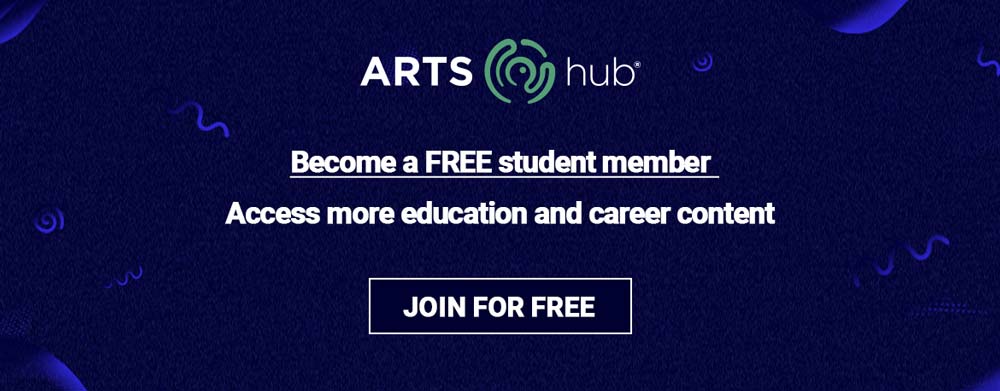Table of contents
Missing the student life? And feeling trepidation about transitioning through the next chapter as a fully-fledged professional in the workforce? You are not alone. For many this can be a terrifying time – unsure which way to step first to get on the career trajectory you’ve long held in your dreams, and not totally sure what you should be doing in the gap time, between now and then?
According to research by Apprenticeship Support Australia (Skillsroad 2018 Youth Census), almost a third of students heading into the workforce (31.3%) say that financial insecurity is their biggest concern, followed by a lack of jobs after university (23.3%) and then balancing work and study (19.9%). While this period of uncertainty is clearly stressful, it can also be productive and positive.
Remember how unfamiliar and daunting it was starting university, but you quickly settled into new routines and new knowledge. Trust that having dealt with change and uncertainty before, you can again. But in the interim, to quell your anxiety before clocking on each day, ArtsHub offers a few tips to ensure a smooth progression, and to gear you up for the next chapter.
Adjust to a new schedule
At university you typically create your own schedule. However, those days will be over as you follow your employer’s hours. Why not get a head start to help you adjust to the workplace, and make a routine for yourself in between graduation and finding a job?
Start to approach your day as you would when working, putting in place wellness practices and exercise ‘outside’ work hours, a lunch routine, and then use ‘worktime’ for career research, job applications and volunteering. Another good habit to form during these transition periods is to write a daily to-do list. Once you start a job it will be ‘full-on’, so adapting now means that when you start your dream job, you will already be geared up to focus on the job at hand, while also embracing a healthy balance.

Adopt workplace strategies
Education is all about grades – passing your courses, and positioning you within your field peers. The workplace is different. Exams are out the door, and goal and project pathways are in. Use this transition time to put your career dreams into career language and shift the mindset. Why not approach your career trajectory as a business plan? Try writing down a three-year plan, and identify some strategies to get your rolling, while that dream job surfaces. Familiarising yourself with business plans and rhetoric is easy today, with many tips found online.
Be patient: remember that you’re transitioning
Finishing uni is such a high – hey you deserve it! Why not use that positive momentum to push yourself out there applying for jobs. Just as laughter is infectious, so too is good energy. But, it is only natural that after a few knockbacks, our confidence can start to teeter. Try not to let those disappointments take over, and remember that you’re in a transition period. Everyone else has gone down the very same path.
Read: Why staying healthy in the arts is so hard
Be kind to yourself and take each of those knockbacks as a lesson to apply. Contact the interviewer and ask for feedback on your application and/or interview. Learning from this transitioning period may help you relax a little when you’re feeling uncertain or starting to doubt your future.
It’s not you – jobs are in short supply
Degree done and qualified – tick. Know your stuff and fit the criteria – tick. Willing to do anything – tick. So why aren’t you getting across the line? The simple fact is that you don’t always get your dream job as your first job. The arts is notoriously tight when it comes to job offerings, with many staying in their positions for long periods. Specialised positions can be slower to present. There may also be three or four people applying for same position who are perfectly qualified, which means it comes down to a personality fit with the organisation and the team. One approach is to consider other positions that are aligned but slightly to the side. As the old saying goes, get your foot in the door and go from there.
Read: Why the Great Resignation is an opportunity, not a loss
Consider volunteering, and learn as you look
School learning and on the job learning are two very different things. While you may have been top of your class, starting a job is a great neutraliser. One way to get ahead of the game while you are looking for that permanent career position is to volunteer. It will help you feel motivated, but it will also allow you to bring that knowledge to the interview table – and to your CV. It also shows a potential employer that you’re determined and committed to this career path.
Reach out and build your network
One thing that uni doesn’t give you is a professional network. While it arms you with collegiate contacts for the future, what you need now are ‘ins’. One way to do that is to start building professional relationships. Volunteering is a good way to do this, attending events and programs is another. You can also reach out to professionals you admire and ask whether they would be willing to have a career mentoring chat. Make an appointment, but don’t waste their time. The upside to this ‘time filler’ is that these people know you are keen and may give you a heads-up if a position is on the horizon or, better still, recommend you to their peers.
Prepare for an entry-level position
We all have aspirations and dreams, but we also all have to start somewhere. Some graduates expect to get a high-paying job immediately after uni – and why not? You’ve worked hard to get the qualifications. The reality is, you need that track experience in the workplace to get the big bucks. Be realistic and consider entry-level positions. That does not mean that you can’t be ambitious.
Use the question time in interviews to ask about career growth in an organisation. There may also be paid training opportunities or ‘perks’ to the job that compensate for that entry-level salary. Remember to keep things in perspective; your first job won’t be your last one.
Don’t compare yourself
Some of your friends will get jobs before you. That can take its toll on your self-esteem, especially if you are last in the line. Turn it around. Use their experiences of adjusting to the workplace to your advantage. Talk to them about what they found most difficult transitioning from student to working life – what would they do differently – and what advice they would offer you.
And remember, no two career journeys are the same. They may come out of the gates running, but lose momentum. You make be a late starter, but end up with a more nuanced career journey.
Use your research skills
It will typically take you three to six months to feel truly settled into a new job, and you are going to feel out of your depth for a long time. This is normal. In fact, you’ll sometimes feel like you don’t know anything. The best way to become familiar is to ask questions and do your research. There is no reason you can’t start this before you start your job. At college you have learned to hone your research skills. Put them to use now. Just as you would delve into every angle on an essay topic, use ‘Google university’ to learn everything you can about the industry, today, you are stepping into – the news headlines, the challenges, the trending topics.
This article was first published: 20 February 2023.





